IFCA conference calls for an action plan
The Indian Flexible Packaging and Folding Carton Manufacturers Association (IFCA) hosted a seminar on 22 October 2019 on the theme Packaging Strategies for the Future - as well as Plastic Waste Mangement - EPR.
26 Oct 2019 | By WhatPackaging? Team
The seminar was hosted alongside the second edition of the ProPak India show from 22 to 24 October in Mumbai.
Suresh Gupta, president of IFCA addressed the issue of plastic waste management. He said, "Today there is a lot of negative publicity about plastic and plastic waste." He said, "There are too many wrong messages that are floating around in the public domain. This is not going to help the industry to grow. People are getting confused about what is single-use plastics. There isn’t enough information out there. Customers are getting sidetracked with the fact that they should stop using plastic. They don’t know all the details."
Gupta felt, the industry needs to go to the public and bust the myths. He requested the industry leaders to ensure that "good messages about plastics are heard."
Gupta referred to some of his earlier speeches and suggested there is "a kneejerk reaction to plastic". The industry bodies have to allay this misconception and suggest that there is a place for plastics." He felt there is an increasing need to bring all the interested parties, from the brands, manufacturers, supply chain and government departments as well as end consumers to try to produce an actionable plastic strategy; right from collecting at the source to waste disposals.
Suresh Gupta of IFCA urges industry leaders to ensure good messages about plastics are heard
He mentioned how more and more Indian companies are adopting exacting packaging standards. He said, "Consumers want their products to be safe and hygienic. This is possible due to good high barrier packaging. Consumers recognise that safe packaging makes for a safe product. Be it: mithai or farsan or hair oil or ayurvedic medicines or herbal medicines, good packaging is required."
The need of the hour is: reduction of plastic materials. At the same time, increase the lifecycle of the product plus look at recyclable elements. His message to the delegates who had gathered was: "We need to discuss what plastic products are good to use and what are not so good. Plus which products can be re-used or re-processed or recycled."
The keynote speaker was CK Ranganathan, the founder and CMD of Cavinkare. Known as the 'father of sachets' in the FMCG domain, CK Ranganathan realised how value-conscious Indian consumers were much before the competition. Ranganathan said, we need to educate the consumers on how to segregate and collect the plastic waste. He felt one must start this process from primary school; since "it is very difficult to educate an adult, but very easy to educate the kids. Plus when you educate a child, on seeing a child's behaviour, an adult will change his behaviour."
He said, banning plastic was not the solution. For one, it was an industry that contributed to other industries. Two, plastic has become a dirty word. But one must compare plastic packaging with other forms of packaging. Plus look at carbon footprints. He felt, that's why plastic has its place. However the plastic packaging industry needs to make the end consumer a lot more aware of what plastics mean to the environment. "We need to think about what happens to the plastic when we’ve finished using it."
He felt forums such as IFCA have as important a role to play in encouraging the use of environmentally friendly packaging formats to the large multinationals and Indian companies as well as SMEs. He felt "The key is to be pro-active and provide solutions with clear information that customers can easily read and understand." Another idea he suggested was: reviewing the customer’s entire packaging portfolio and identifying which packs could be converted to more sustainable materials or where the pack could be modified to reduce the amount of non-sustainable material that is used. Ranganathan said if there is a scorecard then the end customer knows what to collect plus reprocess and reuse the packaging waste.
CK Ranganathan: We need to think about what happens to the plastic when we’ve finished using it
Companies in India, need to embrace technology for transformation and growth, said CK Ranganathan. He said a lot more effort needs to be put into the factory and create sustainable packaging products. He felt, "Very few companies are investing in R&D." He said, there is a misconception that R&D is very expensive. All it requires is a concerted effort." He told the gathering that when he started off in the 1980s; his R&D facility was bigger than his office factory. Ranganathan also emphasised on the need for plastic packaging companies to invest in people, who will in turn invent new technology. Again, he mentioned how his R&D journey began with fresh chemistry graduates, with a limited understanding of R&D. Today Cavinkare has more than hundred scientists, and 40% of these have a PhD.
He spoke about his father (Chinni Krishnan) who conceived the idea of the sachet in the late 1970s. He stated how the sachet has become integral to retail packaging. His father's mantra was simple: whatever a rich man enjoys, the common man should be able to afford.” Ranganathan added a series of products that were packaged in sachets by his father, and one of them was shampoo, which firmly etched its place not only in our day-to-day life, but has also become a packaging strategy of multinational FMCG giants. Today the humble sachet has created 1.5 crore jobs.
He extolled the gathering to innovate. He said, "It should not be product differentiation, but there should be innovation in the process. Since the process is very difficult to copy. He said, "The suppliers and manufacturers and converters can produce a material which is bio-degradable or a truly green product. Everyone is talking about cutting back on plastic, but we need a company which provides better, cleaner, greener product."


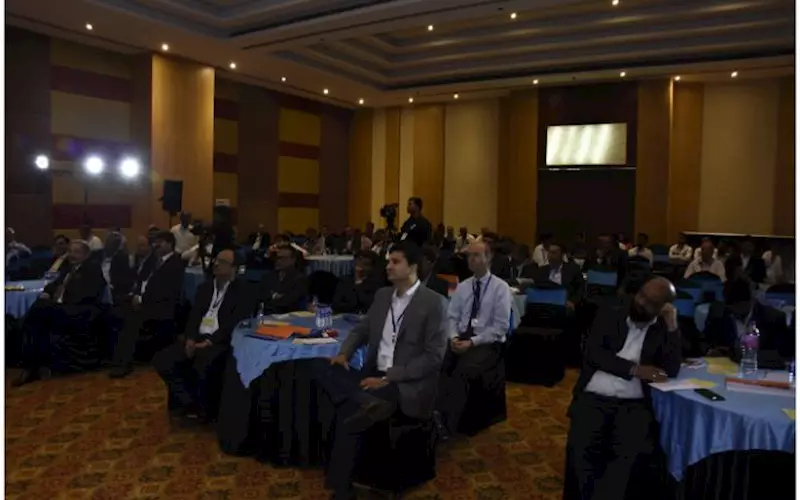


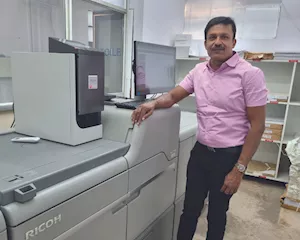
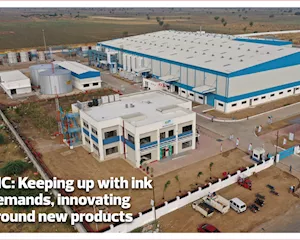
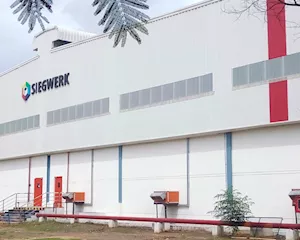
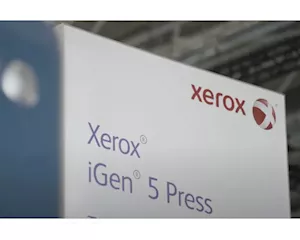
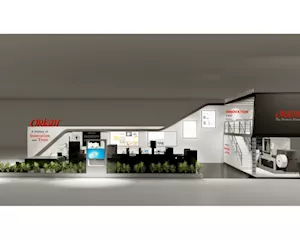






 See All
See All